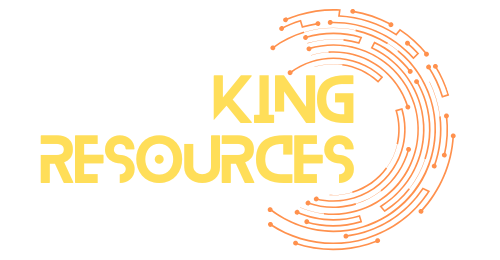Imagine living in a home that practically pays you to stay warm in winter and cool in summer. Sounds like a dream, right? Well, with the right home energy upgrades, that dream can become a reality. These upgrades aren’t just about saving a few bucks on your utility bill; they’re about transforming your living space into an energy-efficient haven that even Mother Nature would approve of.
From snazzy insulation that keeps your home cozy to solar panels that make your roof the envy of the neighborhood, home energy upgrades offer a treasure trove of benefits. Not only do they help the planet, but they also boost your home’s value—talk about a win-win! So, buckle up and get ready to dive into the world of energy efficiency, where saving money and the environment go hand in hand, and maybe even throw in a little humor along the way.
Table of Contents
ToggleOverview of Home Energy Upgrades
Home energy upgrades significantly enhance energy efficiency. These improvements encompass a variety of options tailored to suit diverse needs. For instance, upgrading insulation can reduce heating and cooling costs by 10% to 50%, resulting in substantial savings.
Implementing energy-efficient windows decreases energy loss and improves comfort. The installation of ENERGY STAR-rated windows can lead to savings of $100 to $500 annually on heating and cooling bills.
Incorporating solar panels provides a sustainable energy source, reducing electricity expenses by 70% or more over time. Homes with solar power systems not only benefit financially but also contribute to a decreased carbon footprint.
Advanced heating and cooling systems, such as heat pumps and smart thermostats, offer increased control and efficiency. These systems can lead to energy savings of 20% to 30% when used wisely.
Utilizing energy-efficient appliances plays a critical role in reducing consumption. Appliances that meet ENERGY STAR criteria conserve electricity and water, leading to savings of up to $400 per year.
Lastly, adding energy-efficient lighting, like LED bulbs, can cut lighting costs by 75% without sacrificing brightness. Upgrading to LEDs helps homeowners experience lower energy bills while enhancing the atmosphere of their spaces.
A combination of these upgrades results in a more comfortable, environmentally friendly home. Overall, investing in home energy upgrades can lead to enhanced property value and long-term savings.
Types of Home Energy Upgrades

Home energy upgrades encompass various improvements that enhance efficiency and comfort while reducing utility costs. Below are key categories of these upgrades.
Insulation Improvements
Upgrading insulation can significantly lower heating and cooling expenses. By installing higher R-value materials, homeowners may see reductions in energy consumption by 10% to 50%. Additionally, proper insulation creates a more stable indoor climate, preventing drafts and unwanted temperature fluctuations. Areas such as attics, walls, and basements often yield the best results when insulated effectively. The long-term savings from reduced energy bills contribute to the rapid recovery of the initial investment in insulation upgrades.
Energy-Efficient Windows
Energy-efficient windows play a crucial role in minimizing heat loss. These windows typically utilize double or triple glazing along with low-emissivity coatings to provide better insulation. Homeowners can save $100 to $500 annually on energy bills through improved window efficiency. Furthermore, these windows reduce the need for artificial lighting by allowing more natural light into the home. Replacement with ENERGY STAR-rated windows can enhance comfort and elevate property values simultaneously.
Heating and Cooling Systems
Investing in advanced heating and cooling systems allows for notable energy savings. Heat pumps and smart thermostats can yield energy savings of 20% to 30%. Modern systems not only deliver consistent temperatures but also adjust to optimize energy use. By using zoning controls, homeowners can heat or cool specific areas instead of entire homes, further reducing waste. Regular maintenance of these systems supports their efficiency and prolongs their lifespan.
Renewable Energy Sources
Incorporating renewable energy sources like solar panels drastically cuts electricity costs. Solar energy can lower energy expenses by 70% or more over time, providing substantial financial relief. By generating power on-site, homeowners lessen their reliance on fossil fuels, contributing to a lower carbon footprint. Many renewable energy incentives and tax credits are available, making this upgrade more accessible. The long-term environmental benefits further solidify the case for renewable energy investments in homes.
Benefits of Home Energy Upgrades
Home energy upgrades offer a variety of advantages that contribute to comfort, savings, and sustainability. Enhancing a home’s energy efficiency not only helps the environment but also benefits the homeowner financially.
Cost Savings
Home energy upgrades lead to significant cost savings. Improving insulation can reduce heating and cooling costs by 10% to 50%. Energy-efficient windows can save homeowners between $100 and $500 annually on utility bills. Solar panels cut electricity expenses by 70% or more over time. Energy-efficient appliances, including ENERGY STAR-rated products, can lead to further yearly savings of up to $400. Investing in advanced heating and cooling systems, such as heat pumps, offers additional energy savings of 20% to 30%. Each upgrade contributes to lower monthly bills, leading to substantial long-term savings.
Environmental Impact
Environmental benefits accompany home energy upgrades. Enhanced insulation directly reduces energy consumption, leading to a smaller carbon footprint. Switching to renewable energy sources like solar panels diminishes reliance on fossil fuels, promoting clean energy usage. Energy-efficient appliances decrease overall energy demand, which lowers greenhouse gas emissions. Each upgrade made helps contribute to a more sustainable planet. A home optimized for energy efficiency not only helps the environment but also encourages ecological responsibility.
Increased Home Value
Upgrading a home’s energy efficiency increases its market value. Properties with improved insulation and energy-efficient windows attract potential buyers and sell faster. Increasing energy efficiency enhances the desirability of a home, making it stand out in the real estate market. Additionally, modern heating and cooling systems provide a competitive edge, as buyers appreciate lower operational costs. Homes equipped with solar panels often command higher prices and appeal to environmentally conscious buyers. Investing in energy upgrades ultimately results in significant returns on investment through increased property value.
Considerations Before Upgrading
Before pursuing home energy upgrades, several factors need consideration. Each homeowner’s situation differs, requiring a tailored approach to enhance energy efficiency effectively.
Assessing Your Home’s Needs
Evaluating the current energy performance of a home identifies specific areas for improvement. Start by conducting an energy audit, which can reveal insulation gaps and inefficient appliances. Inspecting windows and doors for air leaks also supports this assessment. Consider engaging a professional for a comprehensive evaluation, as it can lead to more accurate recommendations tailored to the home’s unique characteristics.
Budgeting for Upgrades
Creating a realistic budget influences the upgrades homeowners can pursue. Break down costs associated with insulation, windows, and solar panels to assess affordability thoroughly. It’s beneficial to account for potential rebates and incentives that can offset expenses significantly. Prioritize upgrades based on urgency and expected return on investment to maximize savings over time. Saving money through energy-efficient upgrades also contributes to long-term financial stability.
Choosing the Right Contractors
Selecting qualified contractors ensures high-quality installation and service. Research potential candidates, focusing on their experience with energy upgrades and certifications. Review customer testimonials and check for any references to gauge reliability and quality. Getting multiple quotes allows comparisons, highlighting differences in services and pricing. Ensuring contractors understand the latest energy efficiency standards can contribute to achieving optimal results.
Investing in home energy upgrades not only leads to substantial savings on utility bills but also enhances comfort and boosts property value. With options like improved insulation and solar panels, homeowners can significantly reduce their energy consumption while contributing to a healthier planet.
By tailoring upgrades to individual needs and conducting energy audits, it’s possible to identify the most effective solutions. Choosing qualified contractors ensures these upgrades are installed correctly, maximizing their benefits.
Ultimately, embracing energy efficiency transforms homes into sustainable living spaces, making them more attractive to potential buyers and paving the way for long-term financial rewards.









